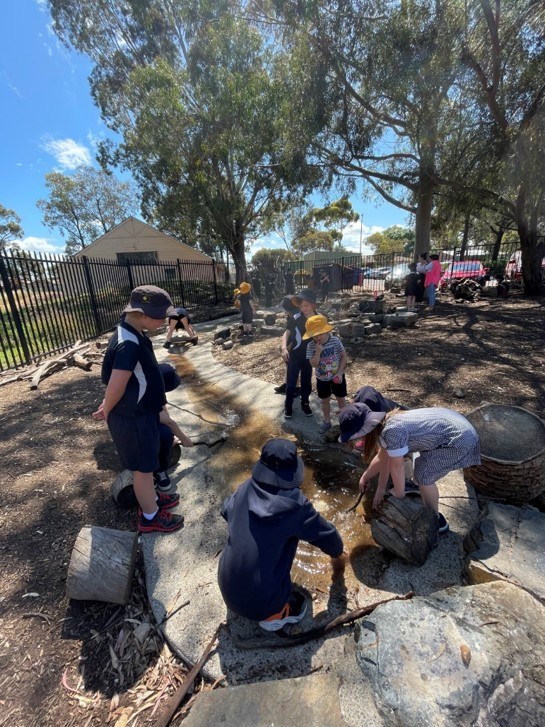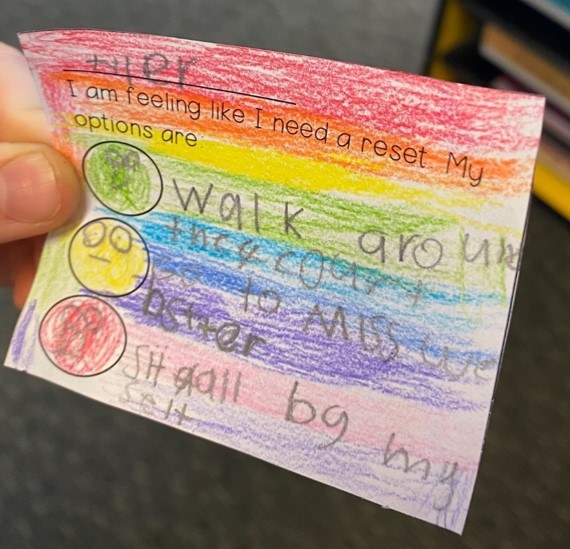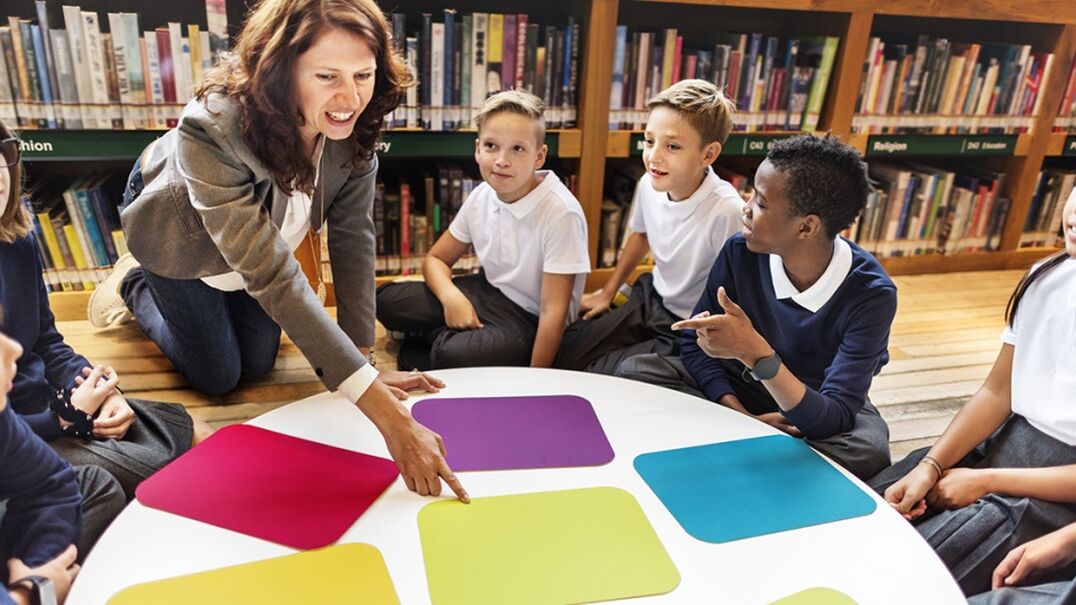Keller Road Primary School is a small school on the traditional lands of the Kaurna Peoples, about 17km north of Adelaide.
It’s been six years since the school implemented the Berry Street Education Model (BSEM), and when it comes to trauma-informed, strength-based practice, their motto is now: “It’s just what we do!”
In 2016, Principal Narelle Kusabs and Deputy Principal Toni Webster joined Keller Road Primary School as a new leadership team. The following year, the school engaged Berry Street and began working with BSEM.
School snapshot:
- 209 students (Foundation to Year 7)
- 22 teachers
- 33 school support officers.
We thank Toni and her team for sharing their school’s story of impact with our community. The following article is in Toni’s own words:
Our school is in a low socio-economic area in the northern suburbs of Adelaide. Our ICSEA score is 918, with over 68% of our families sitting in the bottom 25% of socio-educational disadvantage and 88% in the bottom 50%. Many of our students receive funding for additional or complex learning needs and in 2018 we introduced a dedicated unit to support students with disability.
When I joined Keller Road Primary School in 2016 as a new leader, it quickly became apparent that we needed a strong wellbeing framework to support our students, teachers and families.
We attended a wellbeing professional development seminar and heard Dr Tom Brunzell speak (Berry Street’s Director of Education). The Berry Street Education Model instantly resonated with us.

Our school is complex, as many of our children have experienced and continue to experience trauma and often this presents as challenging behaviours. We knew educational outcomes would not improve for our children unless we supported their emotional wellbeing and created safe spaces for learning.
As a leadership team we embarked on the four-day Berry Street Education Model (BSEM) training course and took the program back to staff. We were excited and inspired, as were our staff, and so, our site transformation began.
Through the Department for Education we were fortunate to secure funding for our entire school to attend the four-day BSEM training course. We invited representatives from our partnership schools, as well as our speech therapists, behaviour coaches and special educators because we knew it was vital to have everyone on board.
After the first two days staff were keen to discuss and implement whole-school non-negotiables, such as implementing a whole-school consistent morning routine and putting in place proactive plans to support our students in difficult moments. This was the first step to success. For some of our staff, BSEM challenged their long-held beliefs about “managing” behaviours, for others it was the window for change.
Getting started: Implementing trauma-informed behaviour policy
As a school, we introduced some new non-negotiable strategies, including:
- reconfiguring the daily timetable so that every day starts with a 15-min Morning Circle and ends with 15-mins of What Went Well (WWW).
- ensuring every student negotiated with their teachers to complete a personal reset card with preferred spaces to regulate and return to being Ready to Learn.
- supporting every classroom to have a designated area to regulate that is co-designed with the students.

We also worked hard to move away from punitive behaviour management policies that were not supporting our staff or our students. One of the most impactful decisions was to abolish our “buddy class”, which was being used as a punitive measure. We felt that this approach damaged relationships and did not address the emotional needs of the child. The transformation away from unhelpful power struggles between adults and children for control was almost immediately obvious.
Students were heard, able to regulate and staff started to read behaviours and the meaning they conveyed.
The benefits of BSEM to our school community
Since implementing the Berry Street Education Model (BSEM), Keller Road Primary School now has a positive feel and is a safe and welcoming space for our students, teachers and families.
Classrooms are safe, consistent and predictable. We have enabled kids to connect and recognise the signs their bodies make when they are becoming dysregulated. We now have proactive plans in place for every student to use in the moments when they need to reset and become ready to learn. Students are confident that their needs will be met.

BSEM has provided us with a consistent language to use across our school, and our students with a base on which to build their emotional literacy. We now have weekly staff meetings for us to share our practice. These meetings present opportunities to support and learn from each other and to sustain the benefits of being a trauma-informed school into the long term.
The Berry Street Educational Model has the flexibility to adapt to the unique needs of our context. For us, it has also meant that we provide a range of initiatives and programs that complement the model and support our children and young people.
We have seen significant improvements in our behaviour data since implementing BSEM. From 2019 to 2022 there has been a dramatic reduction in behaviours of concern. In 2022, we rarely had behaviours of significance that resulted in the need to suspend the child. During the 2020/21 period, no student was excluded from schooling. Children rarely need to be exited from their classroom to leadership. This is due to students recognising when they need to break and reset themselves to be Ready to Learn.
Looking toward the future
The journey over the past six years has been bumpy at times, but the outcomes are clear. We are now seeing beneficial results in our educational outcomes, our behaviour data and in the overwhelmingly positive environment we see in our classrooms every day. Children learn best when they are in a safe, supportive environment: trauma-informed, strength-based practice is now just what we do.
More about the Berry Street Education Model
Developed by teachers for teachers, the Berry Street Education Model (BSEM) provides educators with a toolkit of over 100 practical strategies for immediate use in the classroom and across your school.
BSEM shows educators how they can build student engagement and support an improved capacity for school achievement by:
- understanding the benefits of trauma-informed teaching on child development and ability to learn
- creating a supportive and trauma-informed positive education classroom
- bolstering student-teacher relationships
- applying positive, relational classroom and behaviour management strategies
- instilling strengths-based practices across the school.
Read more BSEM Stories of Impact
Lilydale District School, Launceston, Tas



